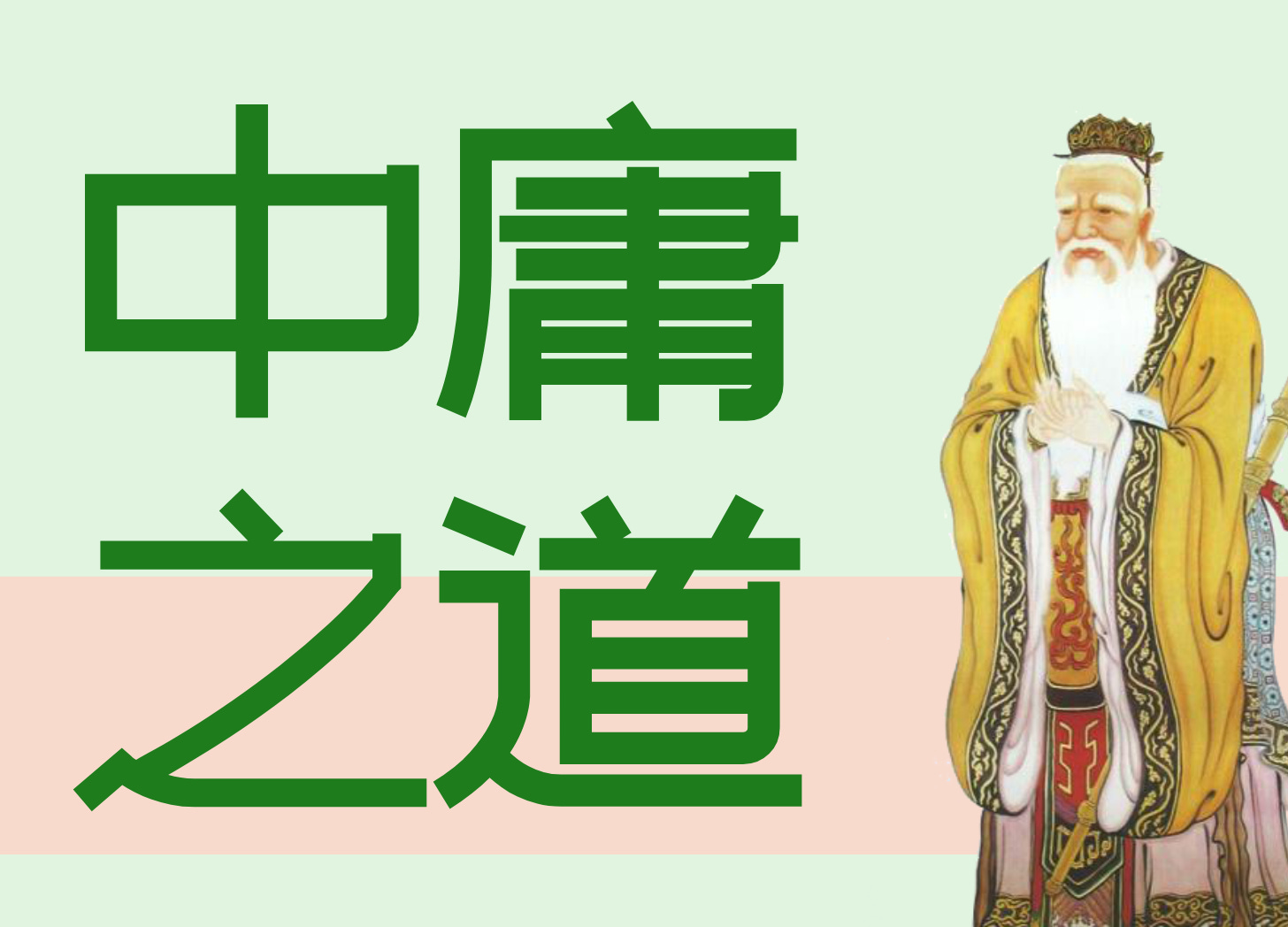Confucianism in Our Daily Life
What this ancient Chinese philosophy can teach us about living in a society 🤝
Idiom of the week: 中庸之道 (zhōng yōng zhī dào)
Meaning: the way of the Doctrine of the Mean, the way of moderation. A Confucian doctrine that teaches us to maintain balance and harmony in life from directing the mind to a state of constant equilibrium.
Happy 2,575th birthday to Confucius! In the Chinese tradition, Confucius' birthday falls on the 27th day of the eighth lunar month of the Chinese calendar. In mainland China, it is celebrated on September 10, while in Taiwan, it is observed on September 28.
In the West, Confucianism is often subjected to negative stereotypes, primarily associated with rigid and inflexible bureaucracy. However, Confucianism has laid the foundations of Chinese civilization and greatly influenced other cultures in East Asia.
What is it about Confucius that made him so popular? And what can he teach us about life?
Confucius Temple in Nanjing, China. Photo: visitourchina
首先,儒家文化强调的“仁爱”思想,在我们的日常生活中有着广泛的应用。无论是家庭关系、邻里相处,还是工作协作、社会交往,我们都可以看到“仁爱”思想的影子。
其次,儒家文化强调的“礼仪”规范。礼仪是人际交往的桥梁和纽带,它能够增进人与人之间的了解和信任,促进社会的和谐稳定。
仁爱 (rén ài) – benevolence, kindness
邻里相处 (lín lǐ xiāng chǔ) – getting along with neighbors
工作协作 (gōng zuò xié zuò) – work collaboration
社会交往 (shè huì jiāo wǎng) – social interactions
影子 (yǐng zi) – shadow, reflection
礼仪 (lǐ yí) – etiquette, manners
桥梁 (qiáo liáng) – bridge
纽带 (niǔ dài) – bond, link
增进 (zēng jìn) – to enhance, to improve, to promote; synonym: 促进 (cù jìn)
和谐 (hé xié) – harmony
Firstly, the Confucian concept of 'benevolence' (ren'ai) is widely applied in our daily lives. Whether in family relationships, interactions with neighbors, or cooperation at work and social exchanges, we can see the influence of the idea of 'benevolence.'
Secondly, Confucianism puts emphasis on 'etiquette'. Etiquette serves as a bridge and bond in interpersonal communication, helping to enhance understanding and trust between people, and promoting social harmony and stability.
再次,儒家文化强调的“诚信”品质。诚信是人际交往的基石,也是社会和谐稳定的保障。
此外,儒家文化还强调“中庸之道”的哲学思想,倡导在事物的发展过程中寻求平衡与和谐。在处理问题时,我们注重权衡利弊、全面考虑;在解决矛盾时,我们注重化解冲突、寻求共识;在追求目标时,我们注重适度而行、避免极端。
最后,儒家文化还倡导“自强不息”的奋斗精神,鼓励我们在面对困难和挑战时保持坚韧不拔的毅力和勇气。
诚信 (chéng xìn) – integrity, honesty
品质 (pǐn zhì) – quality
基石 (jī shí) – cornerstone
保障 (bǎo zhàng) – guarantee, safeguard
中庸之道 (zhōng yōng zhī dào) – Doctrine of the Mean, the way of moderation
倡导 (chàng dǎo) – to advocate, to promote
权衡利弊 (quán héng lì bì) – to weigh the pros and cons
化解 (huà jiě) – to resolve, to defuse
共识 (gòng shí) – consensus
适度而行 (shì dù ér xíng) – to act with moderation, to proceed in a measured or appropriate way
极端 (jí duān) – extremes
自强不息 (zì qiáng bù xī) – continuous self-improvement, perseverance
坚韧不拔 (jiān rèn bù bá) – persistent, unyielding
毅力 (yì lì) – perseverance, willpower
Thirdly, Confucianism emphasizes the quality of 'integrity.' Integrity is the cornerstone of interpersonal relationships and the guarantee of social harmony and stability.
What is more, Confucian culture also emphasizes the philosophical idea of the 'Doctrine of the Mean,' which advocates for seeking balance and harmony. When addressing problems, we focus on weighing pros and cons and considering all aspects; when resolving conflicts, we aim to defuse tensions and seek consensus; when pursuing goals, we value moderation and avoid extremes.
Lastly, Confucian culture advocates the spirit of 'continuous self-improvement,' encouraging us to maintain perseverance and courage when facing difficulties and challenges.
Here are some quotes from Confucius that best exemplify the core of his philosophy:
1. 学而不思则罔,思而不学则殆。(xué ér bù sī zé wǎng, sī ér bù xué zé dài)
Learning without thinking leads to confusion; thinking without learning is dangerous.
2. 温故而知新,可以为师矣。(wēn gù ér zhī xīn, kě yǐ wéi shī yǐ)
By reviewing the old knowledge, one can gain new knowledge and become a teacher to others.
3. 吾日三省吾身。(wú rì sān xǐng wú shēn)
Every day I examine myself three times.
4. 己所不欲,勿施于人。(jǐ suǒ bù yù, wù shī yú rén)
What you do not wish for yourself, do not impose on others.
5. 不患人之不己知,患不知人也。(bù huàn rén zhī bù jǐ zhī, huàn bù zhī rén yě)
Do not worry about others not knowing you; worry about not knowing others.
6. 有朋自远方来,不亦乐乎?(yǒu péng zì yuǎn fāng lái, bù yì lè hū?)
Is it not a joy to have friends come from afar?
7. 君子坦荡荡,小人常戚戚。(jūn zǐ tǎn dàng dàng, xiǎo rén cháng qī qī)
A gentleman is broad-minded and at peace, while a petty person is always full of worries.
8. 为政以德,譬如北辰,居其所而众星共之。(wéi zhèng yǐ dé, pì rú běi chén, jū qí suǒ ér zhòng xīng gòng zhī)
Governing with virtue is like the North Star, which stays in place while the other stars revolve around it.
9. 人而无信,不知其可也。(rén ér wú xìn, bù zhī qí kě yě)
If one does not keep his word, (I) do not know how he can be acceptable.
10. 不怨天,不尤人。(bù yuàn tiān, bù yóu rén)
Do not blame heaven, and do not grudge against others.
11. 君子务本,本立而道生。(jūn zǐ wù běn, běn lì ér dào shēng.)
A gentleman focuses on the fundamentals; when the fundamentals are established, the way naturally arises.
12. 学而时习之,不亦说乎?(xué ér shí xí zhī, bù yì yuè hū?)
Is it not a pleasure to learn and practice regularly?
It definitely is for you; otherwise, you wouldn’t be here with us!
Antoine & Dorota
Referenced authors: 达亦鲜 (Baidu.com), Lingoace.com







